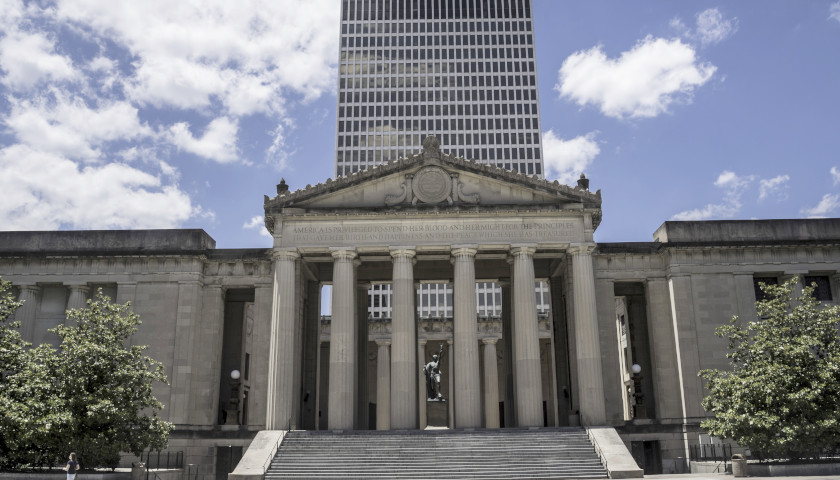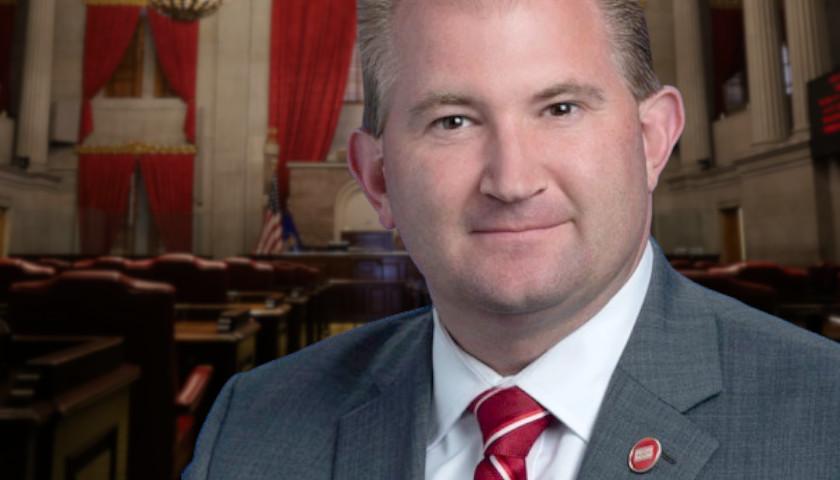The second session of the 111th Tennessee General Assembly wrapped up Wednesday evening after passing the legislation called for in Governor Bill Lee’s proclamation.
Over the course of three legislative days, the state Senate and House passed measures related to COVID-related liability protection, expansion of telemedicine and criminal laws related to protests.
The Senate addressed the legislation through its existing standing committees, while the House used a combination of standing committees and those established specifically for the extraordinary session, including COVID Related Liability Committee, Public Safety Committee and Electronic Delivery of Healthcare Committee.
In all, five bills were passed in the second extraordinary session of the 111th Tennessee General Assembly.
SB 8001 / HB 8006 – a governmental entity, defined as a governing body, board, commission, committee or department of a municipality, county or other political subdivision of the state, shall not intentionally prohibit or prevent law enforcement or fire and rescue services from accessing a specifically bounded area within the entity’s jurisdiction during a public demonstration, unless the services are replaced by like services of another governmental entity.
A governmental entity violating the provision may be held liable for the resulting damages, injury or death.
This bill was not included in the governor’s call for the extraordinary session, but was structured narrowly to fit into the scope of the session.
While Democrats objected to the legislation throughout the process, it went on to pass by a vote of 27-4 in the Senate and 68-19-1 in the House.
SB 8002 / HB 8001 – “Tennessee COVID-19 Recovery Act” requires that in any claims for any loss, damage, injury or death arising from COVID-19, the claimant proves by clear and convincing evidence that it was caused by an act or omission constituting gross negligence or willful misconduct.
The main sticking point on the legislation during the June session of the General Assembly was when to make it effective.
The Senate and House agreed during the extraordinary session to make it effective as of August 3, the day of the call for the special session by Lee, although any lawsuit filed prior to the effective date could continue.
Among other failed amendments, one failed amendment sponsored by state Representative John Ray Clemmons (D-Nashville) sought to rename the measure the “Tennessee Influenza Recovery Act,” with the sponsor calling out his colleagues for their hypocrisy in saying COVID-19 is no worse than the flu.
The bill went on to pass in the Senate with a 27-4 vote and in the House with an 80-10-1 vote.
SB 8003 / HB 8002 – changes to telehealth services.
As the most non-controversial bill of the special session, it passed the Senate with a 30-1 vote and the House with a 91-0-1 vote.
SB 8005 / HB 8005 – revises criminal law to address protesting activities that go beyond being peaceful to damaging public property, assaulting a first responder, or camping in undesignated areas and authorizes the attorney general to investigate crimes when the victim is a state employee, state property was damaged, or the administration of state government was delayed as a result of the crime.
As the most controversial piece of legislation taken up during the extraordinary session, the intense discussions from the day prior in the House Public Safety Committee carried forward to the floor session Wednesday.
Republicans repeatedly explained that under the new law, First Amendment rights would not be infringed upon and that the legislation does not pertain to law-abiding citizens participating in peaceful protests, but rather increases punishment for bad actors.
Democrats in both the House and Senate, however, pushed back against the proposed legislation.
Mentioning nothing of the damage caused to private and public property and the laws broken during recent protests and riots, another amendment filed by Clemmons blamed the recent overnight camping, in violation of existing state law, and the constant presence of citizens on the War Memorial Plaza on Lee for his “refusal to meet with Tennessee citizens and discuss issues concerning social justice.”
The governor’s refusal to have a meeting and his orders to provide 24-hour security, said Clemmons in his amendment, have cost taxpayers hundreds of thousands of dollars.
State Representative Bo Mitchell (D-Nashville), a vehement opponent of the Education Savings Account (ESA) legislation, didn’t miss the opportunity to file an amendment to derail the program.
Mitchell’s amendment called for an investigation by the state’s attorney general into the adoption of the ESA program and all crimes that may have been committed by a public official during the adoption or implementation of the program.
A strong supporter of the ESA program for many years and at what was likely his last House floor session, retiring state Representative Bill Dunn (R-Knoxville) rose to address Mitchell’s amendment.
Reminiscent of the Russian collusion narrative against President Trump, Dunn pointed out that for over a year Mitchell has said that the FBI is conducting an investigation. Yet, as Dunn pointed out, with the FBI’s tactics and tools, they haven’t found evidence of a crime.
Dunn went on to mention that during this time of the coronavirus pandemic, it would be great if parents had the ESA so that they could gather together in pods to get the education that their child needs.
At least four more House Democrats spoke against the legislation, before former Democrat Representative John DeBerry, Jr. rose to speak.
DeBerry didn’t speak on the legislation or question the patriotism of his colleagues but delivered one of the inspirational speeches he is known for.
Reflecting on his real-life experiences during the time of Dr. Martin Luther King, DeBerry talked about the peaceful way that the men and women changed the world at that time and called into question the activities of today.
After a few minutes of speaking, when DeBerry concluded, he received a standing ovation from Republicans.
SB 8004 / HB 8003 – appropriations for the first year of funding for any act passed during the special session that has a cost associated with it.
Appropriations in the bill included $692,500 to implement SB 8003 / HB 8002 relative to electronic delivery of health care; $474,400 for incarceration costs in implementing SB 8005 / HB 8005; and, $68,000 to fund the state share of increased expenditures for laws passed during the extraordinary session will be split in half between municipalities and counties on the basis of population.
After floor sessions began at 2 p.m. for the Senate and 2:30 p.m. for the House, both chambers recessed about four hours later to wait for the other to catch up and agree on amendments.
Just before 7 p.m., the speakers of each house appointed committees to notify the governor and the other chamber of the completion of its business and preparedness to adjourn sine die.
– – –
Laura Baigert is a senior reporter at The Tennessee Star.






So basically, they wasted money making more laws which enforces current laws……great job people….great job….
How about we just enforce the laws hat are already on the books?
No child left behind and common core are both failures, so why are the unions/Dems pushing back on ESAs? Why do they not want poor children to have the same quality of education they chose for their kids? Their kids who likely attended private schools therefore had school choice?